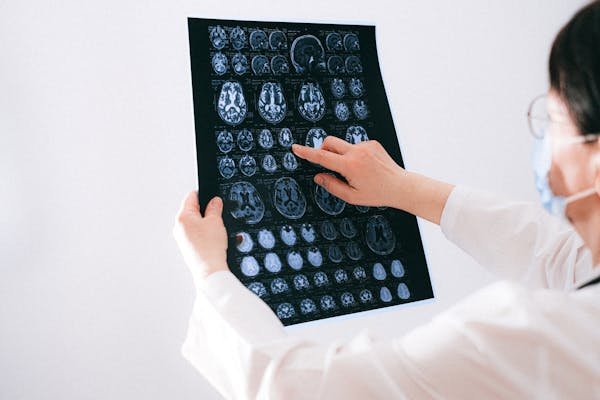The influence of tobacco smoke, which is released during the burning of tobacco, has far-reaching consequences for the human neurological system. It has been proven that tobacco smoke has a toxic effect on the nervous system, and we discussed the consequences and ways to reduce the harmful effects of cigarette smoke with neurology specialist Dr. Jevto Eraković.
Read below his stances on the harmful effects of cigarette smoke on neurological health.
Antena M: How does tobacco smoke affect the human neurological system?
Dr.: It has been proven that smoking weakens the immune system and also has a toxic effect on the nervous system. Knowing that immune-mediated responses are the basis of many neurological diseases, we reached a clear answer that smoking and tobacco smoke have a harmful effect on neurological patients. Cigarette smoke contains over 7,000 chemical substances, 70 of which have been proven to have a carcinogenic effect. These chemical substances act in several ways, but there are two basic mechanisms of action on the neurological system, one is the influence on the blood vessels, the development of atherosclerosis and diseases of the blood vessels of the brain, and the other is a direct influence on the nerve cells, which affects the pathophysiological processes in the central nervous system.
Antena M: What would be the most harmful components of tobacco smoke, when it comes to the impact on the neurological system?
Dr.: Two chemicals from cigarette smoke, nicotine and carbon monoxide, in particular interfere with the vascular system from functioning properly. Exposure to nicotine and carbon monoxide affects blood vessels in ways that increase the risk of cerebrovascular disease. Nicotine is addictive. We know that cigarette consumption is an addictive disease, we hope that it will only be widely accepted by society until recently. The mechanism of action in this case is explained by the destruction of the enzyme mono-amine oxidase B (MAO), which eliminates dopamine, and the accumulation of dopamine causes a feeling of satisfaction in smokers.
Nicotine causes blood vessels to constrict, which limits the amount of blood flowing through the body. This effect is reversible, however over time frequent, if not constant, it results in less elastic blood vessels.
Narrowed blood vessels reduce the amount of oxygen and nutrients that cells receive.
Carbon monoxide, on the other hand, works by binding to hemoglobin, whose function is to transport oxygen. When carbon monoxide binds to hemoglobin, it takes the place for binding oxygen, and it cannot bind, which reduces the amount of oxygen delivered to the cells, leading to reduced oxygenation of all, including nerve structures.
Today, the use of new tobacco and nicotine products is increasingly common. You should know that they all contain nicotine, just like cigarettes, but the levels of other harmful compounds, such as the already mentioned carbon monoxide, are significantly reduced. This certainly does not mean that the mentioned products are without health risks.
Antena M: Is there a difference between the level of harm, when we take into account the impact of tobacco smoke, in relation to whether a person is an active smoker, or is around smokers, more precisely a "passive smoker"?
Dr.: Although legally accepted in almost all countries of the world, cigarettes are one of the biggest poisons that people knowingly introduce into their bodies, endangering both their own health and the health of the people around them. There is a difference, but not as much as one might think, between active and "passive" smokers. The group of passive smokers is directly at risk and all competent studies confirm this. A big problem with smoking is that young people start consuming cigarettes earlier and earlier, without realizing its bad sides, such as its harm to their body.
Studies have shown that both active and "passive" smoking shrinks the human brain, and when that brain mass is lost, it is gone forever. Namely, brain scans of more than 32,000 people clearly link anamnestic data about smoking or long-term stay in smoking rooms with a gradual loss of brain volume. In fact, the more packs of cigarettes a person smokes per day, the smaller their brain volume. By the way, the decrease in brain volume is consistent with accelerated aging, and this is important because our population is getting older, so aging and smoking are risk factors for dementia, which is increasingly present.
Antena M: What are your advices for reducing the harmful effects of tobacco smoke on human neurological health?
Dr.: We advise all neurological patients who are at risk or have had a cerebrovascular incident to stop smoking immediately. The same applies to chronic neurological patients for whom, as we have seen, there is a proven harmful effect of tobacco smoke. He is happy that the number of smokers in the world is decreasing year by year. Therefore, it is necessary to continuously implement campaigns against smoking and tobacco smoke. Smokers should be constantly advised to stop smoking immediately, and information about alternative products should only be available to those who do not want to quit.
This interview is part of the support for the project "To breathe air without tobacco".









Komentari (0)
POŠALJI KOMENTAR